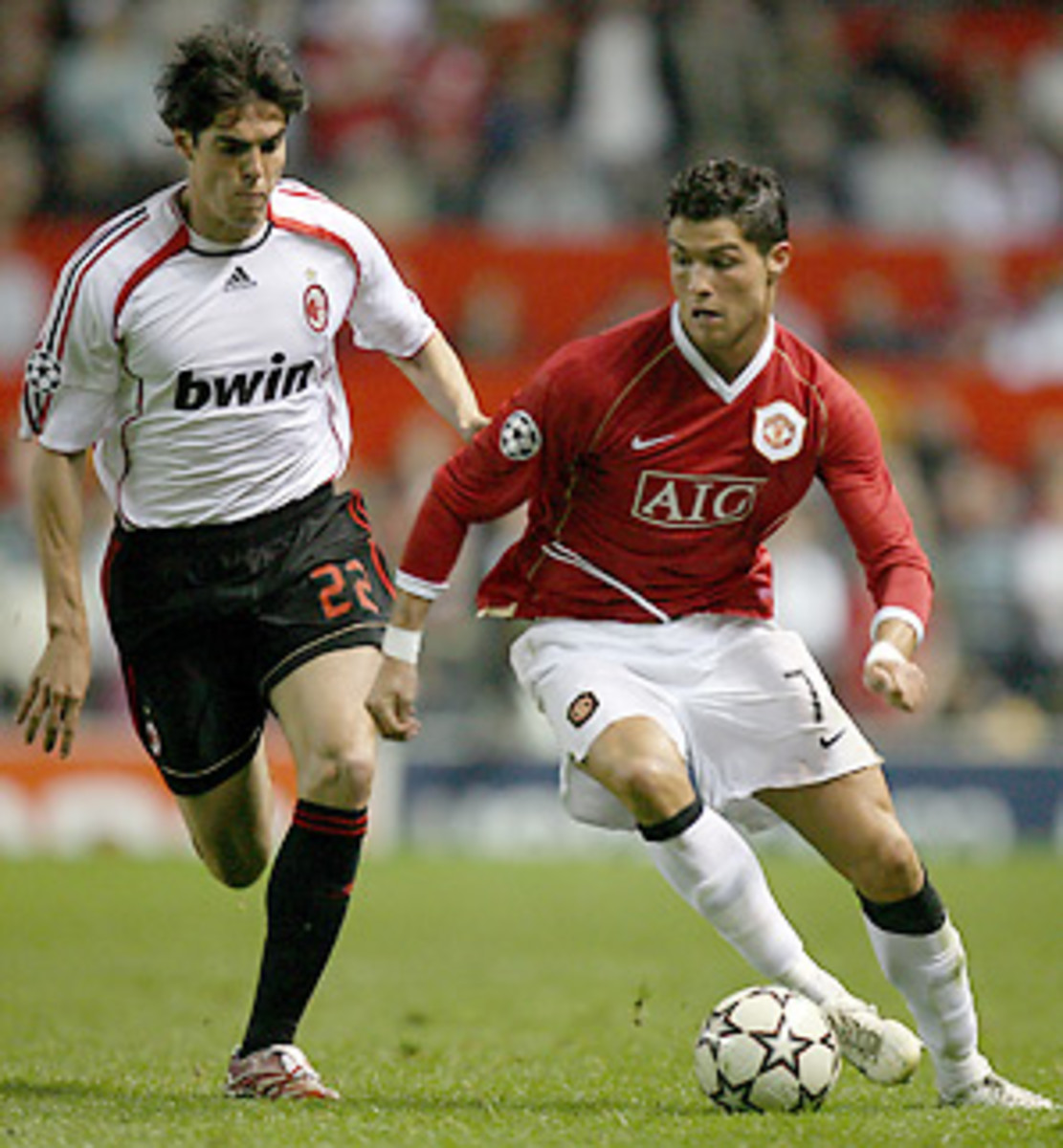Rules don't apply with Real Madrid
Either way, Pérez turned the game on its head with the acquisition in successive years of Luís Figo, Zinedine Zidane, Ronaldo and David Beckham. It wasn't just the size of the transfer fees that shocked the world, it was the fact that Real was strolling in and securing top players from some of its direct competitors, something that had never been attempted on such a scale.
Now, history is repeating itself. After signing Kaká from AC Milan for $92 million last week, Real Madrid now has picked up Cristiano Ronaldo from Manchester United for a world record $131 million (assuming the reigning FIFA World Player of the Year agrees to personal terms with Madrid, which is almost a formality at this point). That's a combined $223 million splashed out on the next generation of Galácticos, and the club isn't done yet. And the man pulling the strings is, once again, Pérez, just 11 days after returning to the Real presidency, a job from which he had to resign in disgrace in February 2006.
Then, as now, the world is shocked. Questions abound. How can Real afford to splash out such sums? Why does everyone want to flock to the Bernabéu? And does this signal a rebirth for a side that, on the European stage, has come up short of late, witness five straight years of failing to make the quarterfinals of the Champions League?
The answer to the first question is multi-layered. Real has some built-in advantages that no other club has. For a start, it's not a for-profit business; it's essentially a public trust with tremendous social and political clout, which means it has access to favorable lines of credit to a degree unmatched by other clubs. It also enjoys the game's richest domestic TV deal: $223 million a season, which is more than double what Manchester United gets.
Throw in other factors, like a tax regime that allows foreign players to pay 23 to 25 percent in tax (rather than upwards of 40 percent) for the first five years they're in the country and a commercial/sponsorship department that is among the very best in the world and you get your answer. Real Madrid is the biggest brand in the game, maybe in all of sports. And it knows how to exploit that fact.
As for why Ronaldo and Kaká agreed to leave, it wasn't just about money. Part of it was the lure of the Bernabéu, coupled with the fact that they already delivered silverware to their previous clubs. In Kaká's case, Milan's wobbly financial situation played a part as well. As for Ronaldo, the weather, the lifestyle, the proximity to home and, probably, the fact that Sir Alex Ferguson turns 68 this year and isn't getting any younger (though some, like me, often wonder if he isn't immortal like the Highlander) all came into play.
The fact that the Champions League final will be played in Madrid next year and that winning it would bring the club's total to 10 isn't lost on anyone. To be truly competitive though, there is still work to be done. Real needs a central defender and, probably, a holding midfielder, too. It also needs to sell some of its leftover stars -- Rafael van der Vaart, Arjen Robben, maybe Wesley Sneijder -- and do so at a reasonable price.
Most of all, it needs to keep everyone happy, starting with Raúl. Unless he reverts to playing as a left winger, there's no rational spot for him on this team. And it's unimaginable to think he might go anywhere else.





